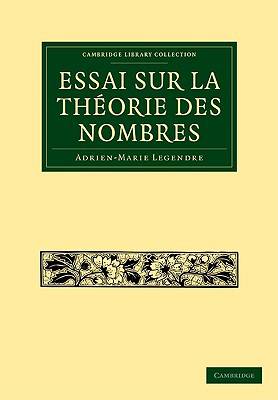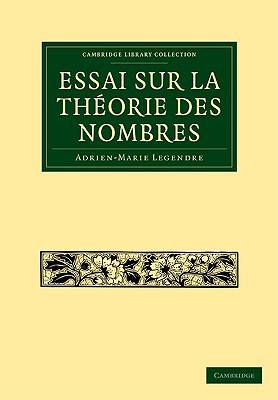
Door een staking bij bpost kan je online bestelling op dit moment iets langer onderweg zijn dan voorzien. Dringend iets nodig? Onze winkels ontvangen jou met open armen!
- Afhalen na 1 uur in een winkel met voorraad
- Gratis thuislevering in België vanaf € 30
- Ruim aanbod met 7 miljoen producten
Door een staking bij bpost kan je online bestelling op dit moment iets langer onderweg zijn dan voorzien. Dringend iets nodig? Onze winkels ontvangen jou met open armen!
- Afhalen na 1 uur in een winkel met voorraad
- Gratis thuislevering in België vanaf € 30
- Ruim aanbod met 7 miljoen producten
Zoeken
Omschrijving
Adrien-Marie Legendre (1752-1833), one of the great French mathematicians active in the Revolutionary period, made important contributions to number theory, statistics, mathematical analysis and algebra. He taught at the École Militaire, where he was a colleague of Laplace, and made his name with a paper on the trajectory of projectiles which won a prize of the Berlin Academy in 1782, and brought him to the attention of Lagrange. In 1794 he published Eléments de géométrie, which remained a textbook for over 100 years. The first edition of his Essai sur la théorie des nombres was published in 1798, and the much improved second edition, which is offered here, in 1808. In it Legendre had taken account of criticism by Gauss of the mathematical proofs in the first edition, though he was bitter at the manner in which his younger rival had claimed credit for some of his solutions.
Specificaties
Betrokkenen
- Auteur(s):
- Uitgeverij:
Inhoud
- Aantal bladzijden:
- 544
- Taal:
- Engels
- Reeks:
Eigenschappen
- Productcode (EAN):
- 9781108001731
- Verschijningsdatum:
- 20/07/2009
- Uitvoering:
- Paperback
- Formaat:
- Trade paperback (VS)
- Afmetingen:
- 170 mm x 244 mm
- Gewicht:
- 857 g

Alleen bij Standaard Boekhandel
+ 128 punten op je klantenkaart van Standaard Boekhandel
Beoordelingen
We publiceren alleen reviews die voldoen aan de voorwaarden voor reviews. Bekijk onze voorwaarden voor reviews.











